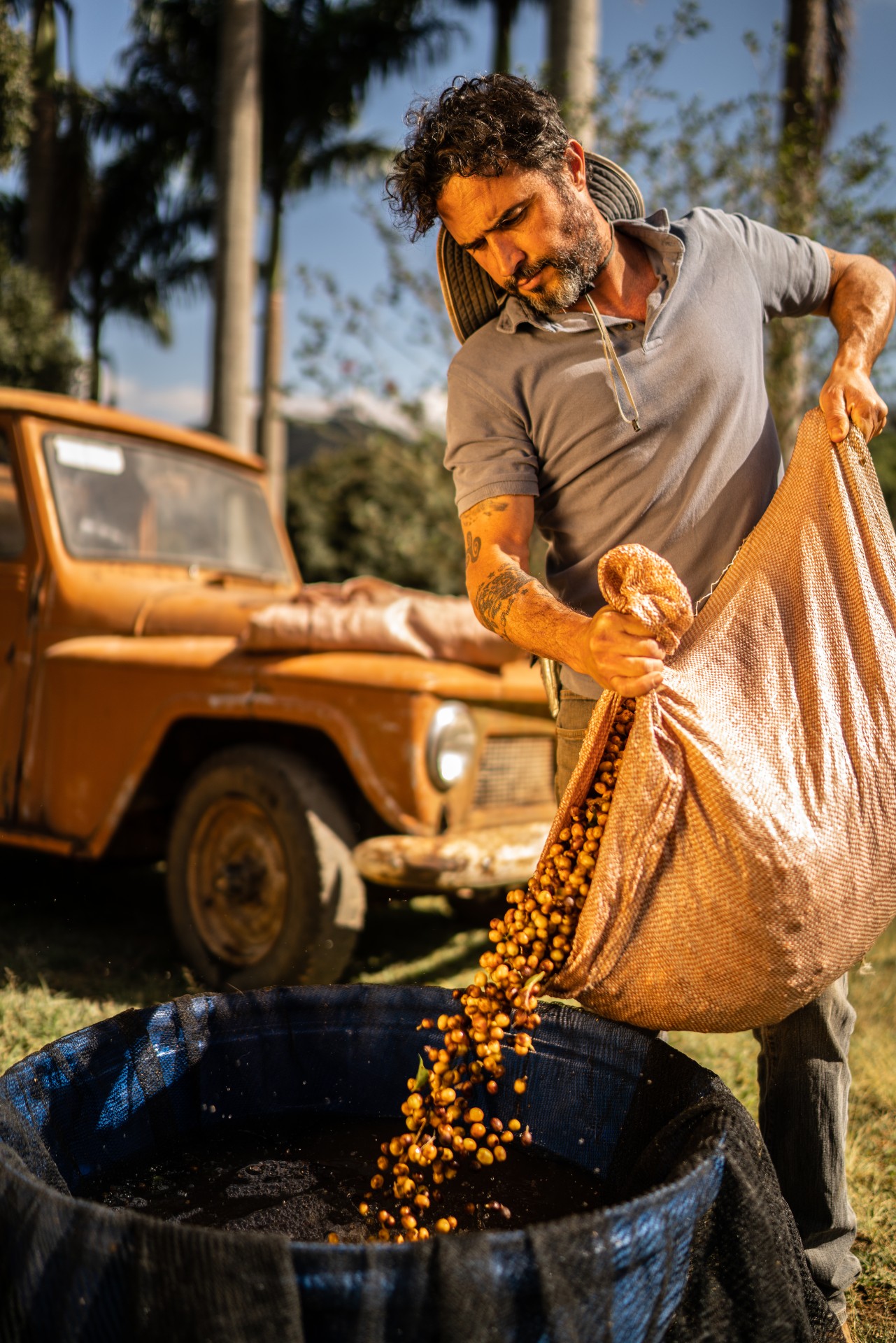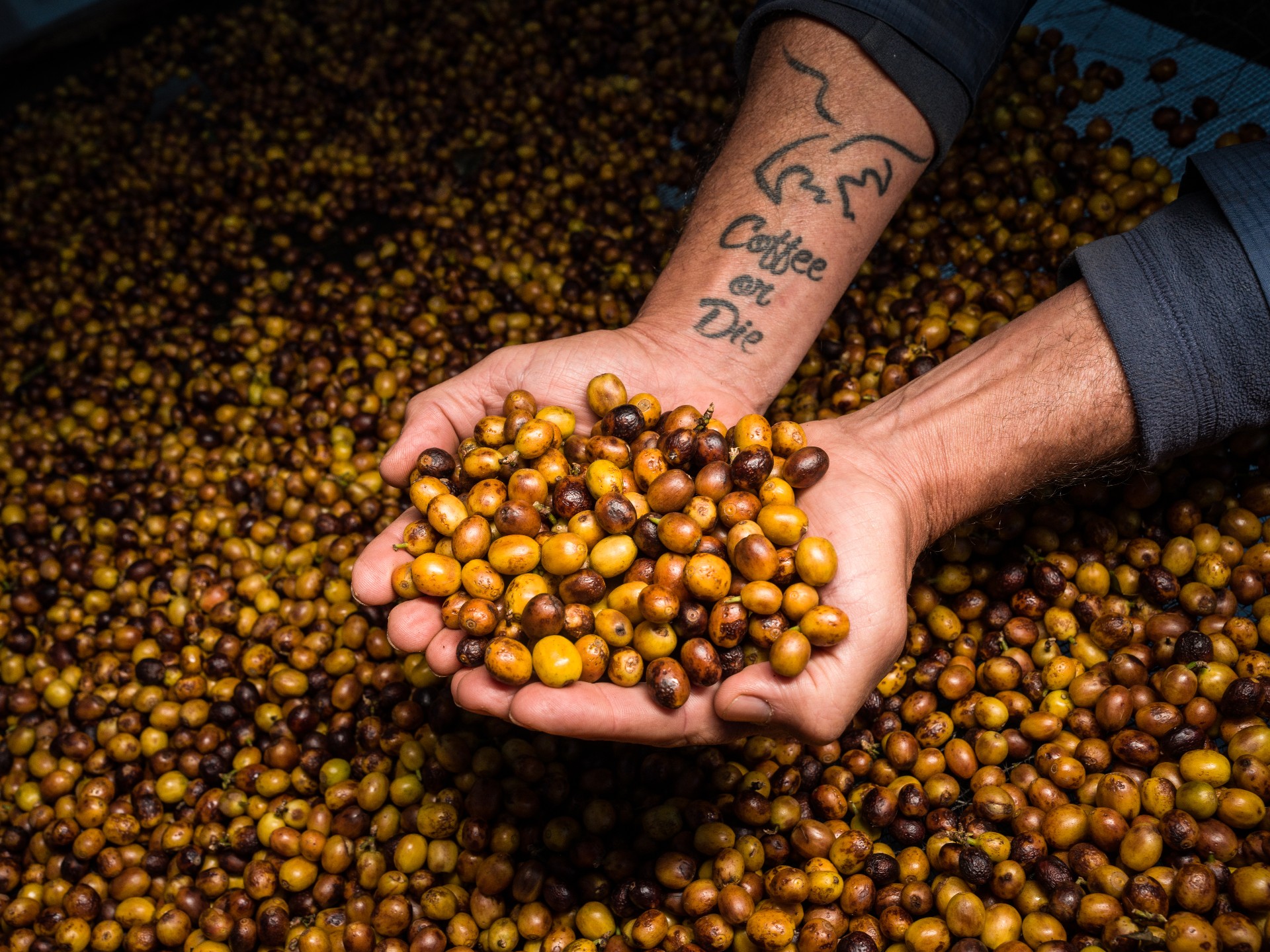Brazil FAF Caparaó Clayton Barrossa Monteiro Natural – 28370 – 60.0 kg GrainPro Bags – SPOT RCWHSE
Position Spot
Bags 0
Warehouses Oakland
Flavor Profile Lime, orange, caramel, sweet, creamy
Please Note This coffee landed more than 8 months ago.
Out of stock
About this coffee
Grower
Sítio Vista Alegre, Sítio das Cabras & Clayton Barrossa Monteiro
Altitude
1200 - 1350 masl
Variety
Red & yellow catucai, red & yellow catuai, bourbon
Soil
Latosols
Region
Sítio Vista Alegre, Sítio das Cabras & Clayton Barrossa Monteiro Region: Alto Caparaó, Caparaó Region, Minas Gerais state, Brazil
Process
Natural
Harvest
June - November
Certification
Conventional
Coffee Background
Brazil’s Parque Nacional do Caparaó, on the border of Minas Gerais and Espirito Santo states, is an awe-inspiring place. For coffee buyers conditioned to the sight of central and western Minas Gerais, with its endlessly rolling, shade-less coffee savannah, coffee grown in the Caparaó foothills looks like Minas turned on its side: slopes are aggressively steep, shaded, and wet, more resembling places like Nariño, in Colombia, or the Sandia Valley, in southern Peru, rather than the vast majority of Brazil. Southeastern Brazil gets little credit for its mountainousness, at least in coffee, where all of the scale is achieved in the more mechanical-friendly inland regions of Minas Gerais and São Paulo. But Caparaó is part of a scattered chain of ridgelines that combines the tropical rainforests of the Atlantic side with the warm, dry climate of the western inland expanse, whose closest ecological resemblance is the Andes mountains.
Clayton Barrossa Monteiro is a local superstar in Alto Caparaó. A former professional surfer and now zealous coffee farmer, he is the owner of Ninho de Águia, an organically managed, award-winning small farm on the western foothills of the Pico da Banderia, Brazil’s third-highest peak at 2,982 meters. After numerous regional and national quality competition wins, Clayton started a local roasting brand and retail coffee tasting experience in his home, creating a one-of-a-kind coffee immersion for tourists to the national park. Eventually he connected with FAF Coffees, a family export group specializing in farms just like his, and they partnered to grow the Caparaó farmer network, with Clayton introducing FAF to other farmers seeking environmental transformation. Clayton also oversees processing for certain farms, in some cases drying naturals centrally at his own station according to his extensive experience in the mountainous climate. This particular lot is a combination of 2 Alto Caparaó farms overseen by Clayton: Sítio Vista Alegre and Sítio das Cabras. The farms are 3 and 4 hectares respectively, miniscule by Brazil standards. Sítio Vista Alegre is owned by Fernando Heringer, who inherited the farm in 2011 and manages it with his wife Glenda. Sítio das Cabras is run by Anderson Robadel, a former pastor committed to regenerative practices who uses cover crops and farm-made biomass compost in place of herbicides. Both farms have spent the past 5-10 years restoring their soils, minimizing water waste and chemical runoff, and optimizing their picking and drying practices to get their coffees to shine. Coffee on each farm is picked by hand and by derriçadeira (handheld stripping tool), sorted thoroughly, and dried slowly on raised screens over a period of 2-3 weeks.
This micro-blend from Alto Caparaó is part of a small lineup we have this year from FAF Coffees, a specialty exporter in Brazil founded by the Croce family. During their years spent struggling to revive the soils of their own family estate in the Mogiana region, the Croces connected with like-minded family farms struggling as well to make farming viable for the next generation, with a strong focus on their immediate ecosystems—the watersheds and canopies that made the land worth living on—as well as quality, as means to economic independence and self-esteem. Over the years the Croce’s network of farmers grew. FAF now exports coffee on behalf of 150 small and sustainable farms throughout the Mogiana region, and increasingly, other pockets of entrepreneurial small growers dedicated to the same combination of cup quality and environmental health, exuberantly referred to in the FAF network as “total quality”.






